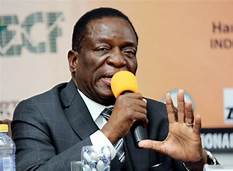By Bustop TV
The United Nations Special Rapporteurs have confronted President Emmerson Mnangagwa over the PVO bill noting concerns of impediments on the rights to freedom of association and vast other irregularities within the bill.
The Rapporteurs wrote to Mnangagwa seeking clarity on the bill and its provisions.
The Special Rapporteurs said, “If adopted into law in its current version, this bill will have grave consequences for the exercise of civil and political rights, including the right to freedom of association, of Private Voluntary Organisations (PVOs) in Zimbabwe. We welcome the opportunity to submit these comments in light of international human rights standards and best practices on the rights to freedom of association, and we stand ready to engage further with your Excellency’s Government on this matter.”
The UN rapporteurs quizzed the reasons for the bill calling for the government to pay “attention to the competent international human rights law provisions.”
The UN Special Rapporteurs based this assertion on the reasons given for the crafting of the bill which include complying with the Financial Action Task Force (FATF), ensuring that PVOs do not participate in political lobbying and monitoring the administration of PVOs ,regulating and registering them.
To this the Special Rapporteurs said, “Before addressing our specific concerns with the Amendment Bill, we respectfully call your Excellency’s Government’s attention to the competent international human rights law provisions enshrined in the International Covenant on Civil and Political Rights (ICCPR). Article 22(1) of the ICCPR, ratified by Zimbabwe on 13 May 1991, states that “everyone shall have the right to freedom of association with others.”
Pursuant to Article 2 of the ICCPR, States have a responsibility to take deliberate, concrete and targeted steps towards meeting the obligations recognized in the respective Covenants, including adopting laws and legislative measures as necessary to give domestic legal effect to the rights stipulated in the Covenants and to ensure that the domestic legal system is compatible with the treaties.”
According to the letter, the government ignored recommendations previously made in 2019 by the Special Rapporteur on the rights to freedom of peaceful assembly and of association.
The Rapporteurs said that there are provisions under the current PVO Act that would not be compliant with international norms and standards but were not revised by the Amendment Bill. In particular, the Amendment Bill retains a registration requirement For PVOs to operate in Zimbabwe. After his visit to Zimbabwe in 2019, the Special Rapporteur on the rights to freedom of peaceful assembly and of association recommended the State to “amend the Private Voluntary Organizations Act in full consultation with civil society and other relevant stakeholders and avoid enacting regressive legislation in the future.
The recommendations made by the Rapporteur were for the government to adopt a regime of declaration or notification whereby an organization is considered a legal entity as soon as it has notified its existence to the regulating authorities; to ensure that the registration procedure for national and international organizations is more simple and expeditious; facilitate the ability of organizations to access funding and resources without interference; and avoid the use of excessive sanctions, particularly incarceration, for omissions in law.
“Unfortunately, none of these recommendations seem to have been taken into account in the drafting of the Amendment Bill. In light of the above mentioned concerns, and should they be corroborated, we are seriously concerned that the overall prospective impact of the Amendment Bill, would likely be detrimental to civic space in Zimbabwe. As it is our responsibility, under the mandates provided to us by the Human Rights Council, to seek to clarify all cases brought to our attention, we would be grateful,” said the UN Rapporteurs.
The government was asked to explain provisions of the Bill and justify its existence.
“Please explain how the Draft Amendment is compatible with the obligations of Your Excellency’s Government under articles 19 and 22 of the International Covenant on Civil and Political Rights and FATF recommendation 8. Please provide information on how the assessment of the threats and vulnerabilities of the NPO sector was carried out and address if such assessment was carried out in line with FATF guidance, including with the proper involvement of the NPO sector. Please provide more detailed information concerning the powers extended to the Minister and Registrar to enforce provisions of the Draft amendment and safeguards to ensure that measures adopted are necessary and proportionate in a democratic society. Please provide information about the legislative process, its expected timeline, along with efforts to ensure substantive civil society consultation and outreach.
“This communication, as a comment on pending or recently adopted legislation, regulations or policies, and any response received from your Excellency’s Government will be made public via the communications reporting website after 48 hours. They will also subsequently be made available in the usual report to be presented to the Human Rights Council,” said the Rapporteurs.
